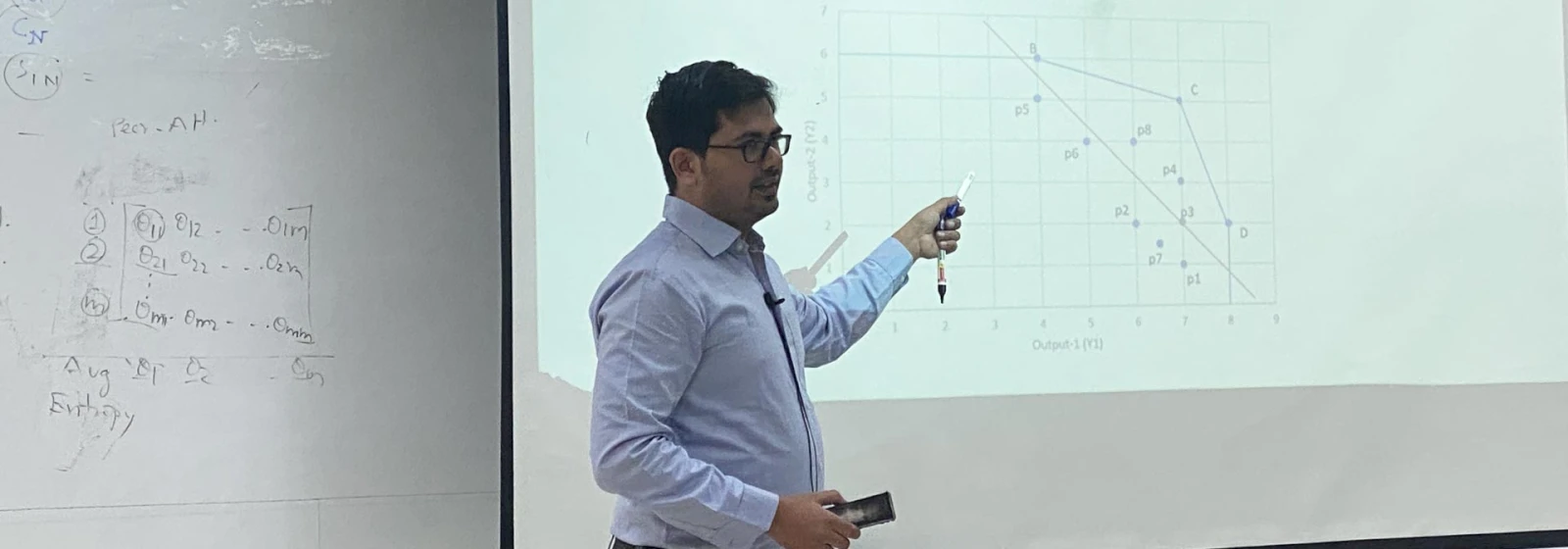Seminar on ‘Rank-ordering of efficient units based on an unsupervised learning algorithm’ by Dr. Utsav Pandey
Data Envelopment Analysis (DEA) incorporates within its efficiency evaluation framework the flexibility for all the decision-making units (DMUs) to reflect their performances in the best possible light. This is carried out by weighing inputs and outputs per a dynamic set of weights that differs for each DMUs. However, for the final ranking of the DMUs, the cross-efficiencies of the respective DMUs are combined using arithmetic mean or entropy-based measures. These existing methods suffer from multiple issues, such as overfitting of the DEA model when the observed DMU set is small and equal weightage of all peer-DMUs in the derivation of the aggregated cross-efficiency model. To resolve these issues, this study proposes a new unsupervised ranking algorithm that allows different weights to different cross-efficiencies depending on the similarities between the evaluating DMUs and the corresponding peer-DMUs. In the process, it is assumed that the cross-efficiencies assigned by the most similar DMUs should carry higher weightage than DMUs that are highly dissimilar. These similarities are calculated based on the preferential sequence of the DMUs measured in terms of Euclidean distance. To ensure a flexible weighing scheme, the weights are derived based on the soreness value of the ordered weighted average (OWA) operator. To illustrate the applicability of the proposed method, nine Iranian petrochemical plants are evaluated for their efficiencies. We have also shown how the new algorithm can be used in any ranking system to improve computational costs and to what extent it ensures unit invariance property and immunity against noisy data.
About the Speaker
Mr. Ustav Pandey has a keen interest in research and teaching in the field of Operations Management (OM)/Decision Science (DS) area. His primary research interests are in the areas of environmental performance, resource allocation, and dynamic production planning. At Infosys, he worked closely with Apple Inc. as his client and developed several applications and solutions for different components of their supply chain, e.g., packaging, inventory, pricing, gift cards, etc. Hence, he has a programming as well as a practical understanding of the working principles of operations management.

Share this: